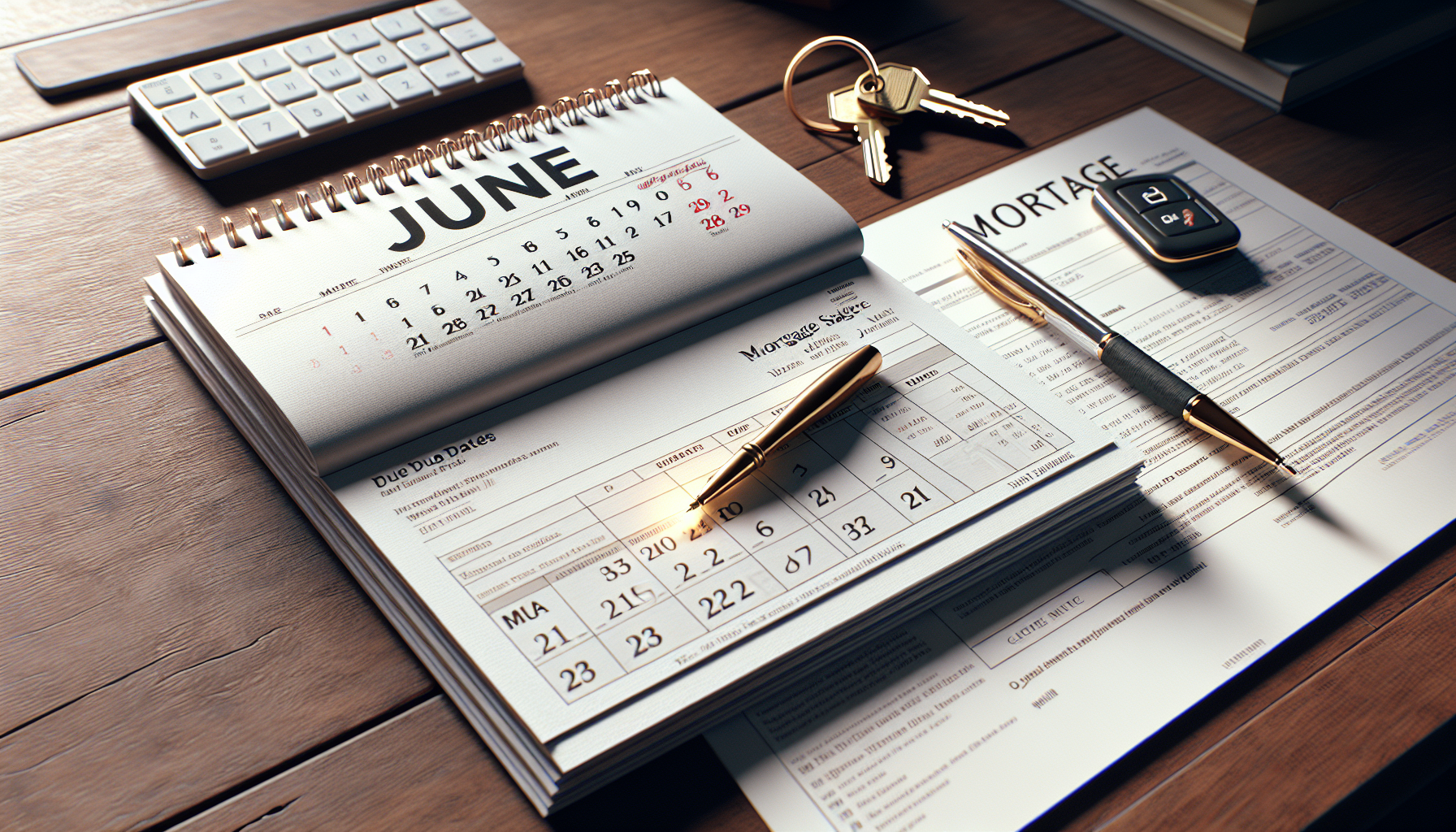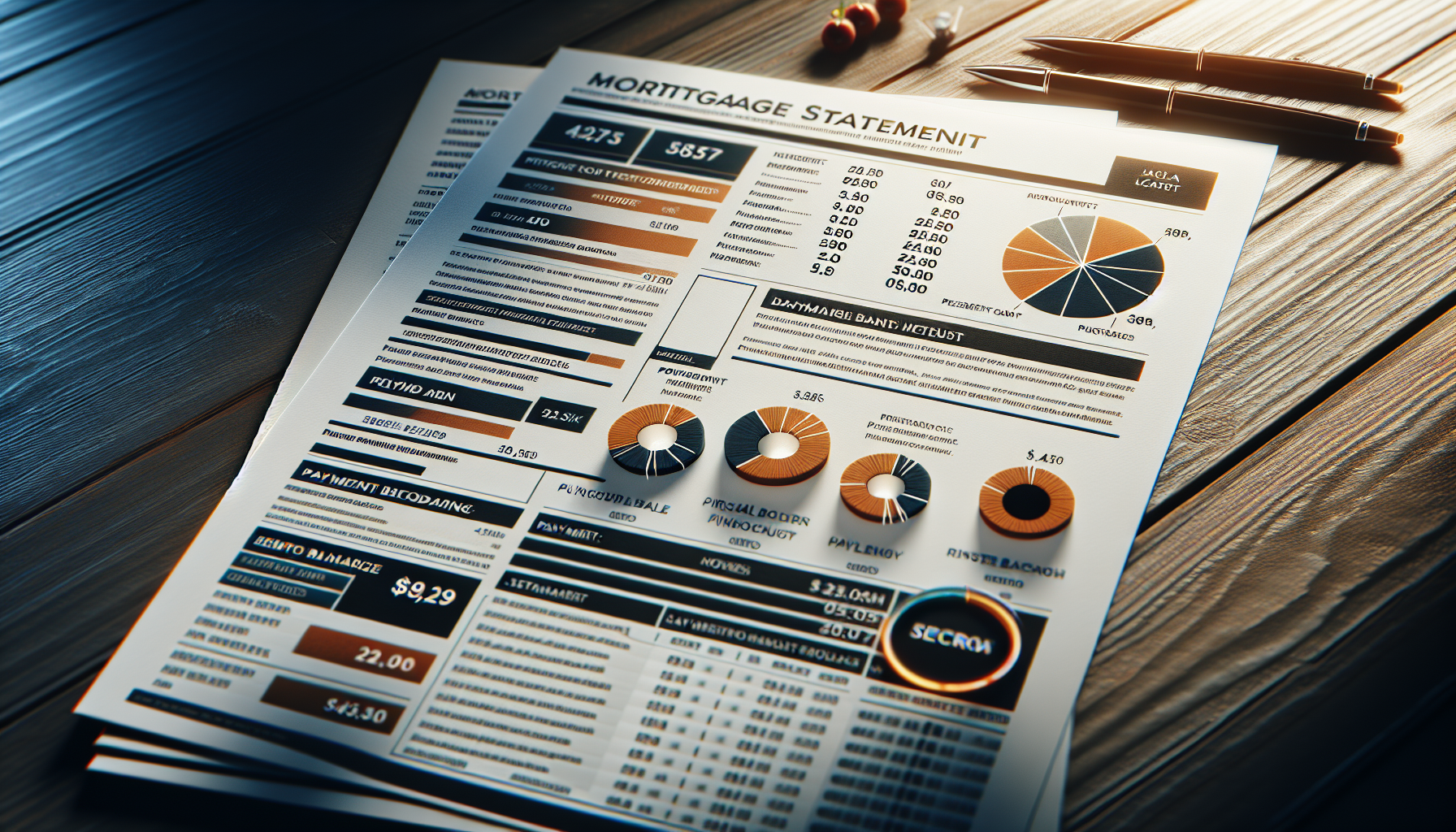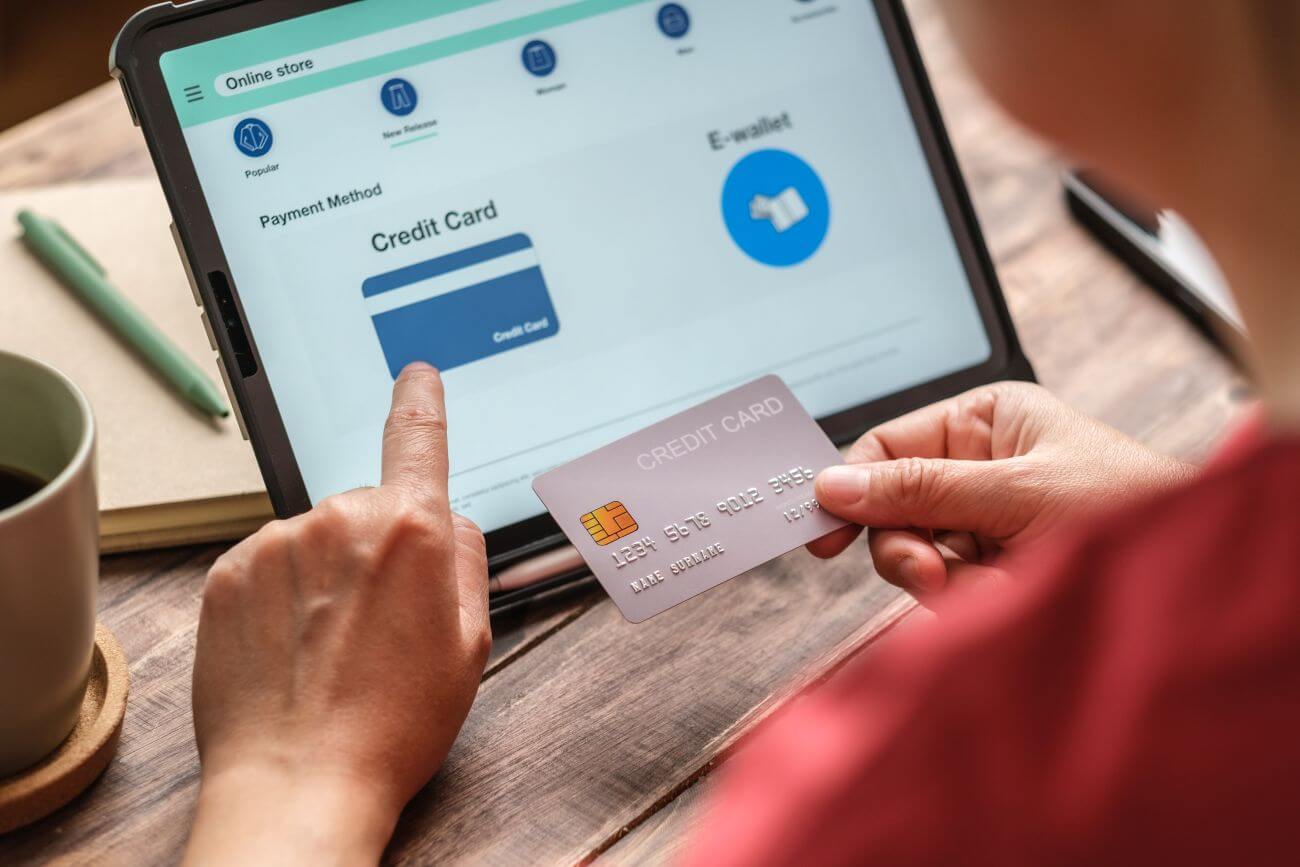Closing Date and First Mortgage Payment
When you close on a new home, one of the most important things to understand is when your first mortgage payment will be due. The date of your closing plays a significant role in determining this, as the first payment is typically scheduled about 30 days after you officially become the owner of the property. Knowing the relationship between these two dates is crucial for planning your finances and ensuring you don’t miss any payments.
It’s essential to note that while the closing date and first payment due date are related, they are not the same. The closing date is when you sign all the necessary paperwork and legally take ownership of the home, while the first payment due date is when your initial mortgage installment must be paid. Understanding this distinction will help you better manage your budget and avoid any confusion or late payments.
Understanding the Relationship Between Closing Date and First Payment
The general rule of thumb is that your first mortgage payment will be due on the first day of the month, approximately 30 days after your closing date. This means that if you close on your home in the middle of a month, your first payment will likely be due on the first day of the second month following your closing. For example, if you close on June 15th, your first payment would be due on August 1st.
However, it’s important to note that this can vary slightly depending on your lender and the specific terms of your mortgage. Some lenders may require your first payment to be made within 60 days of closing, regardless of the exact closing date. It’s crucial to clarify this with your lender before closing to ensure you’re prepared to make your first payment on time.
Example: Closing on June 1st and First Payment Due Date
To better illustrate the relationship between closing date and first payment due date, let’s consider an example. If you close on your home on June 1st, your first mortgage payment would likely be due on August 1st. This is because June has 30 days, and your first payment would be scheduled for the first day of the following month, which is August 1st.
| Closing Date | First Payment Due Date |
|---|---|
| June 1st | August 1st |
Keep in mind that this is just an example, and your specific due date may vary based on your lender’s requirements and the terms of your mortgage. Always confirm the exact date with your lender to avoid any misunderstandings or late payments.
Mortgage Payment Structure and Timing
When it comes to making your mortgage payments, it’s essential to understand how they are structured and timed. Most mortgage payments are made in arrears, which means that you are paying for the previous month’s interest and principal, rather than the current month. Additionally, your closing costs may include prepaid interest, which can impact the timing of your first payment.
Familiarizing yourself with these concepts will help you better plan your finances and ensure you’re making your payments on time. Let’s take a closer look at how mortgage payments are made in arrears and the role of prepaid interest in determining your first payment date.
Mortgage Payments Made in Arrears
When you make a mortgage payment, you are typically paying for the interest and principal that accrued during the previous month, not the current one. This is known as paying in arrears. For example, if your mortgage payment is due on August 1st, you are actually paying for the interest and principal that accrued during the month of July.
This arrears structure is important to understand when considering the timing of your first mortgage payment. Since your first payment is usually due about 30 days after closing, it will include the interest that accrued during the month following your closing date.
Interest Prepayment and Its Impact on First Payment Date
Another factor that can influence the timing of your first mortgage payment is prepaid interest. When you close on your home, you may be required to pay the interest that will accrue from the closing date until the end of the month. This prepaid interest is often included in your closing costs.
The amount of prepaid interest you owe will depend on your closing date. If you close near the end of the month, you’ll owe less prepaid interest than if you close at the beginning of the month. This is because you’re only responsible for the interest that accrues from your closing date until the end of that month.
| Closing Date | Prepaid Interest |
|---|---|
| Early in the month | More prepaid interest |
| Late in the month | Less prepaid interest |
The prepaid interest can affect the due date of your first mortgage payment. If you close early in the month and pay more prepaid interest, your lender may allow you to skip the following month’s payment and have your first payment due on the second month after closing. However, this varies by lender, so be sure to clarify the specific terms of your mortgage.
Components of a Mortgage Payment
Your monthly mortgage payment is made up of several components, each serving a specific purpose. Understanding these components can help you better manage your finances and plan for the future. The two main parts of a mortgage payment are principal and interest, which go toward paying off your loan balance and the cost of borrowing money, respectively. Additionally, many mortgage payments include an escrow account that covers property taxes and homeowners insurance.
Principal and Interest Breakdown
The principal portion of your mortgage payment goes toward paying off the original amount you borrowed to purchase your home. As you make payments over time, the amount of principal you pay each month will gradually increase, while the amount of interest will decrease. This is because your loan balance decreases with each payment, resulting in less interest charged.
The interest portion of your payment covers the cost of borrowing money from your lender. The amount of interest you pay each month is determined by your loan’s interest rate and the remaining balance. In the early years of your mortgage, a larger portion of your payment will go toward interest, but this will shift over time as you pay down your principal.
| Payment Component | Description |
|---|---|
| Principal | Pays down your loan balance |
| Interest | Covers the cost of borrowing money |
Your lender will provide you with an amortization schedule, which details how much of each monthly payment goes toward principal and interest over the life of your loan. Reviewing this schedule can help you understand how your payments are allocated and how you’re progressing toward paying off your mortgage.
Escrow Account for Taxes and Insurance
In addition to principal and interest, your mortgage payment may also include an escrow account. This account is used to collect funds for property taxes and homeowners insurance, which are typically paid on an annual or semi-annual basis. By including these expenses in your monthly mortgage payment, your lender ensures that these important costs are paid on time, protecting their investment in your property.
The amount of money collected in your escrow account each month is based on the estimated annual costs of your property taxes and insurance. Your lender will divide these annual expenses by 12 to determine the monthly amount to be added to your mortgage payment. They will then pay these bills on your behalf when they come due, using the funds accumulated in your escrow account.
- Escrow accounts collect funds for:
- Property taxes
- Homeowners insurance
It’s important to note that escrow accounts are not always required, but they are common for many mortgages. If your loan does not include an escrow account, you’ll be responsible for paying your property taxes and insurance directly. However, many homeowners prefer the convenience of having these expenses included in their monthly mortgage payment.
Mortgage Payment Methods and Options
Making your mortgage payments on time is crucial for maintaining a good credit score and avoiding late fees or other penalties. Fortunately, there are several methods and options available for paying your mortgage, allowing you to choose the one that best fits your needs and preferences. It’s also important to understand your lender’s grace period policy and the consequences of making a late payment.
Various Methods to Make Mortgage Payments
Most lenders offer a variety of payment methods to make it convenient for borrowers to pay their mortgage on time. Some common options include:
- Online payments: Many lenders have online portals where you can securely log in and make your payment electronically.
- Automatic payments (auto-pay): You can set up automatic payments, which withdraw the funds from your designated bank account on a specific date each month.
- Payments by mail: You can mail a check to your lender’s payment processing address.
- Phone payments: Some lenders allow you to make payments over the phone using a debit card or electronic check.
Choose the method that works best for you, taking into account factors such as convenience, security, and any associated fees. Setting up automatic payments can be especially helpful in ensuring you never miss a due date.
Grace Period and Late Payment Consequences
Most lenders offer a grace period for mortgage payments, which is typically around 15 days after the due date. This means that if your payment is due on the 1st of the month, you may have until the 15th or 16th to make your payment without incurring any late fees or penalties.
However, it’s essential to understand that payments made during the grace period are still considered late and may be reported to credit bureaus if they are more than 30 days past due. Late payments can have a significant negative impact on your credit score, making it more difficult or expensive to borrow money in the future.
| Payment Timing | Consequences |
|---|---|
| On or before due date | No late fees or credit score impact |
| During grace period | No late fees, but payment considered late |
| After grace period | Late fees applied, possible credit score impact |
| More than 30 days late | Reported to credit bureaus, significant credit score impact |
To avoid these consequences, make every effort to pay your mortgage on time each month. If you’re facing financial difficulties, contact your lender as soon as possible to discuss potential options, such as a loan modification or forbearance.
Tips for Managing Your Mortgage Payments
Effectively managing your mortgage payments is essential for maintaining financial stability and working towards your long-term goals. By implementing smart strategies, such as making extra principal payments or seeking advice from a financial advisor, you can save money on interest, pay off your mortgage faster, and improve your overall financial well-being.
Making Extra Payments to Save on Interest
One powerful way to reduce the total interest you pay over the life of your mortgage is to make extra payments toward your principal balance. By doing so, you can shorten the length of your loan and save a significant amount of money in the long run.
Some strategies for making extra principal payments include:
- Biweekly payments: Instead of making one monthly payment, split your payment in half and pay that amount every two weeks. This results in making 26 half-payments per year, which equates to 13 full monthly payments, one extra payment per year.
- Rounding up your payments: Round up your monthly payment to the nearest $50 or $100, and apply the extra funds to your principal balance.
- Lump-sum payments: When you receive extra money, such as a tax refund or bonus, consider putting some or all of it toward your mortgage principal.
Before making extra payments, ensure your lender applies the additional funds to your principal balance and not to future interest. Also, check if your mortgage has any prepayment penalties, which could negate the benefits of making extra payments.
Seeking Advice from a Financial Advisor
Navigating the complexities of mortgage payments and overall financial planning can be challenging. Seeking guidance from a qualified financial advisor can help you make informed decisions, create a personalized payment plan, and work towards your long-term financial objectives.
A financial advisor can help you:
- Assess your current financial situation and goals
- Create a budget that includes your mortgage payments and other expenses
- Identify opportunities to save money or pay off your mortgage faster
- Develop a comprehensive financial plan that aligns with your life goals
When searching for a financial advisor, look for someone with experience in mortgage planning and a commitment to acting in your best interests. You can start your search by asking for referrals from friends, family, or trusted professionals, or by using online tools like the SmartAsset financial advisor matching tool.
By working with a financial advisor and implementing smart payment strategies, you can take control of your mortgage payments and work towards a more secure financial future.
See also:








Leave a Reply